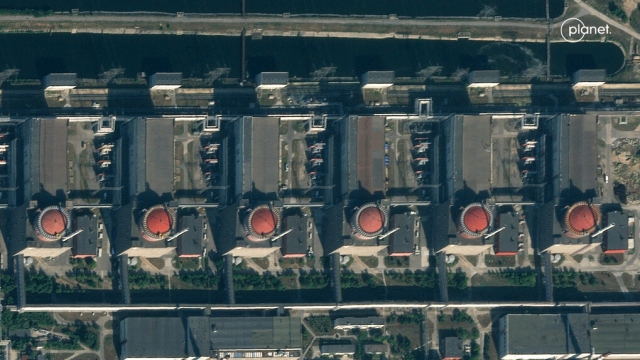Ukraine and Russia both accused each other Wednesday of planning attacks against the Zaporizhzhia Nuclear Power Plant, one of the largest in the world and a hotly contested infrastructure target during Russia's invasion of Ukraine.
Russian forces seized control of the plant early in the war and have occupied it ever since.
Shelling at and around the plant has made power generation unsafe, and the reactors have been shut down.
On Tuesday Ukrainian president Volodymyr Zelenskyy said intelligence reports showed Russia was mining the power plant so as to simulate damage from an attack.
"Their detonation should not damage power units but may create a picture of shelling from Ukraine," read a statement from Ukraine's armed forces.
Russian power officials said there was "no basis" for those claims, and later claimed themselves that Ukraine was planning an overnight strike against the plant. No such attack occurred.
SEE MORE: Ukraine prepares for terrorism at nuclear power plant
The International Atomic Energy Agency has personnel stationed at the plant and performs regular inspections. The group said its latest inspection hadn't shown any indications of activities related to explosives.
"Our experts must be able to verify the facts on the ground. Their independent and objective reporting would help clarify the current situation at the site, which is crucial at a time like this, with unconfirmed allegations and counter allegations," IAEA Director General Rafael Mariano Grossi said in a statement.
Nuclear experts told the Associated Press the risk of radioactive release remains low overall. The reactors and fuel are protected by thick reinforced concrete structures, and the reactors have been offline for long enough that dangerous isotopes generated by the reactions are no longer present.
SEE MORE: Japan gets green light to release water from Fukushima nuclear plant
Trending stories at Scrippsnews.com




